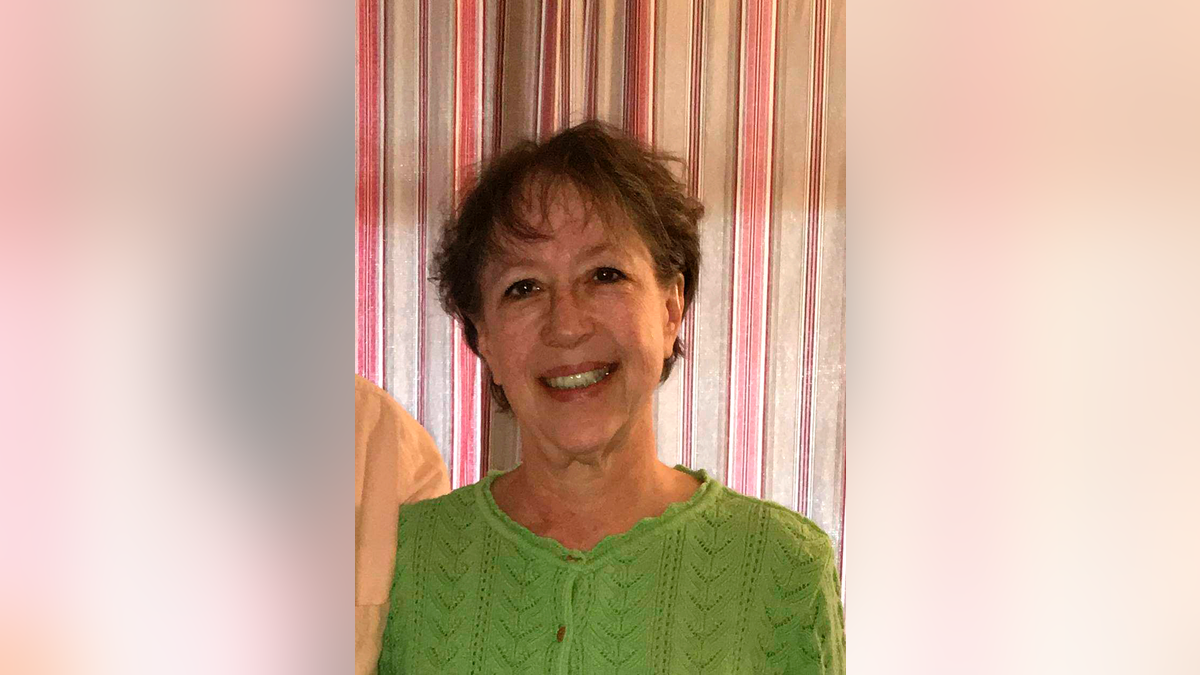
This December 2018 photo provided by LeAnn McCrabb shows Annette Cahill, 56, at her home in Tipton, Iowa. Cahill is scheduled to stand trial on Monday, March 4 for first-degree murder in the 1992 beating death of her former boyfriend, Corey Wieneke. Cahill, a grandmother who works at the Police Law Institute, is expected to make for an unusual defendant. The case may hinge on whether jurors believe a woman who says she was 9 when she overheard Cahill confess to killing bartender Corey Wieneke weeks after the slaying. (Courtesy of LeAnn McCrabb via AP)
IOWA CITY, Iowa – An Iowa grandmother will stand trial Monday in the 1992 killing of her former boyfriend in a case built largely on an alleged confession heard by a child.
The trial will test prosecutors' ability to get a conviction in a case in which they have no physical evidence against Annette Cahill. Instead, the outcome may hinge on whether jurors believe a woman who says she was 9 when she overheard Cahill confess to killing bartender Corey Wieneke weeks after the slaying.
Cahill has pleaded not guilty to first-degree murder in the death of Wieneke, 22, whose body was found in his West Liberty home in October 1992. If convicted, she faces life in prison.
Cahill, 56, is an unusual defendant. She has no criminal history and has continued her longtime job with the Police Law Institute, an Iowa-based company that helps train police officers nationwide, while awaiting trial. She has said that Wieneke was her best friend and that she wasn't involved in his death, which devastated her. Many of her friends and relatives, who praise her cooking and quilting skills, say she is the victim of a miscarriage of justice .
But the prosecution is expected to argue that, decades ago, Cahill was a different person and part of a hard-partying group in the small town with a lifestyle that included sexual affairs, drugs and alcohol. They're expected to claim that she killed Wieneke in a rage about the former high school football player's engagement to another woman, Jody Hotz.
"He was a great young man," said father James Wieneke, who intends to be at the trial in Muscatine.
Cahill was a divorced mother of two who had been in a sexual relationship with Wieneke, who tended bar at the tavern owned by his grandmother. Investigators say the pair argued early Oct. 13, 1992 about their relationship and his engagement.
Hotz has told police that Wieneke came home and was sleeping when she left for work that morning. She called 911 to report finding his cold, bloody body on the bedroom floor after she returned that evening. Investigators later recovered a baseball bat from a nearby road that they believe is the murder weapon. But they have not found DNA or fingerprint evidence against Cahill from the bat or otherwise.
Cahill was a suspect because she was among the last people to see Wieneke alive. Her attorneys say she has always cooperated and was voluntarily questioned numerous times. After the case went cold, Cahill moved to the nearby town of Tipton, remarried and had another child and grandchildren. In 2009, she began working in customer service at the Police Law Institute, which provides continuing education for 10,000 officers monthly. Her boss David Oliver says she's passionate about proper policing and "very pro-law enforcement."
The Division of Criminal Investigation reopened the Wieneke case after an agent received a tip from a woman while working an unrelated case in 2017. The woman, 36, has told police that she was 9 in 1992 and visiting a childhood friend who is Cahill's niece. One evening, she says she saw Cahill pacing around, lighting candles and making incriminating statements about killing Wieneke.
The woman's mother is expected to testify that her daughter told her about the confession then.
Cahill's lawyers are expected to attack their claims as tainted by animosity. Cahill had an affair in 1991 with the girl's stepfather, which contributed to the end of her mother's marriage, they say. A childhood memory expert hired by the defense has called the testimony "extremely questionable."
Cahill was arrested last May and jailed for months on a $1 million bond. A judge let her out on electronic monitoring in September.
Authorities have since disavowed a key claim they made in the criminal complaint: That Cahill knew Wieneke was killed by a bat before that information was public. That claim was mistaken, they say.
Defense lawyer Clemens Erdahl said he was disturbed that allegation was made publicly without evidence. He has argued that the prosecution's case is weak.
"This has been very difficult for her and her family, in terms of costs associated with contesting a case of this magnitude," he said of Cahill.








































